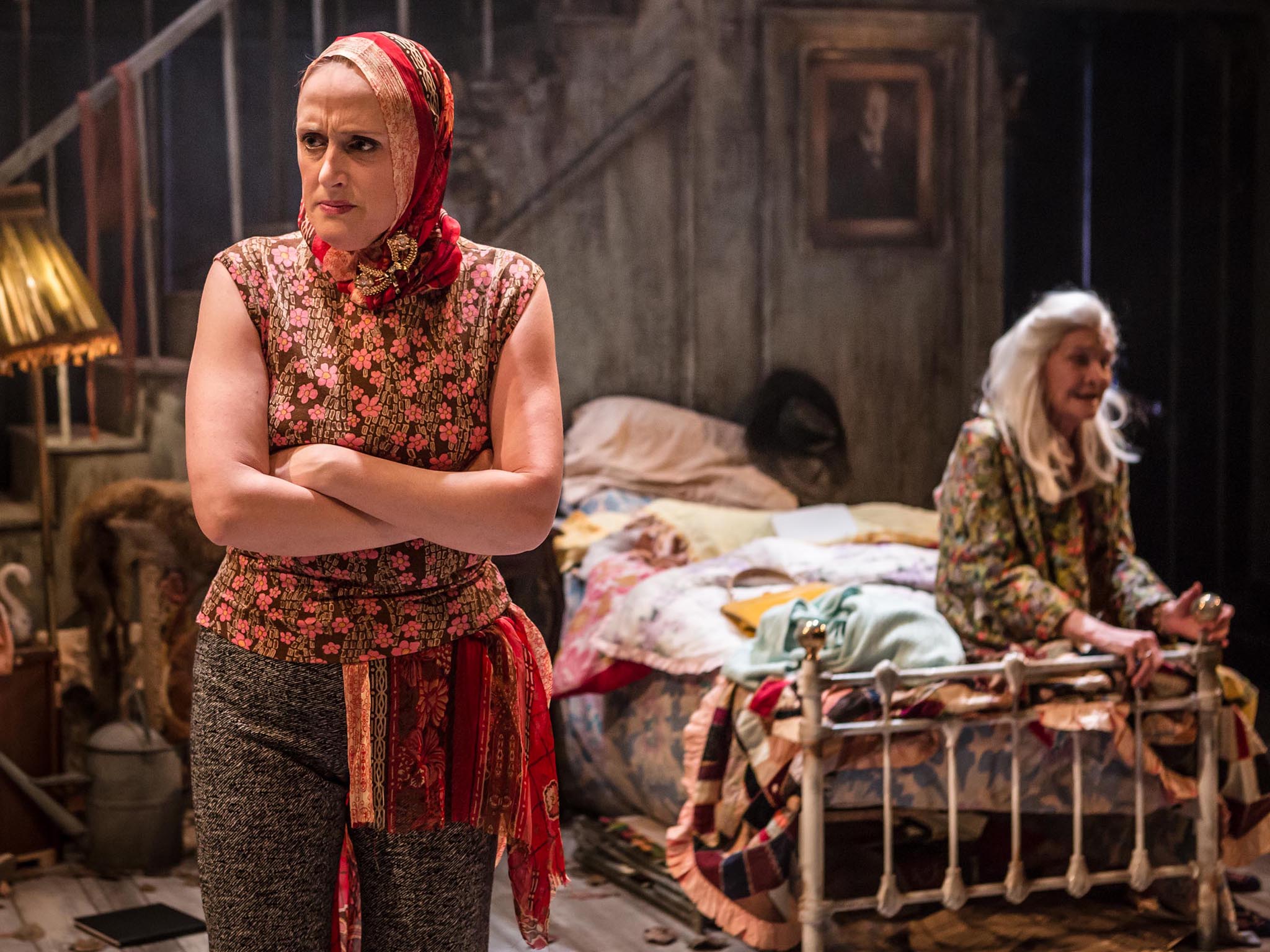Grey Gardens, Southwark Playhouse, theatre review: Love-hate story of upper class Americans strongly recommended
Sheila Hancock is a touching and unsettling presence as Edie in arthritic old age

The love-hate story of a pair of upper class Americans, rankling in a trap of co-dependency, in conditions of mounting squalor – this seems to be the scenario of choice at the moment. At Found 111, there's Richard Greenberg's extraordinary play about the Collyer Brothers, whose dead bodies were dicovered in their Fifth Avenue brownstone under piles of booby-trapped detritus. Now this sharp, haunting musical – here receiving its beautifully performed European premiere from Thom Southerland at Southwark – turns its attention to another real-life double act of reclusive eccentrics. Respectively, the aunt and first cousin of Jacqueline Kennedy Onassis, “Big Edie” aka the divorced Edith Bouvier Beale (1895-1977) and her unmarried daughter “Little Edie” (1917-2002) became the subject of a 1975 documentary when the Maysles Brothers discovered the former socialites living as pariahs in their 28-room East Hampton mansion now so infested by cats and racoons that the Board of Health declared it “unfit for human habitation”.
The second half of the show, which sticks closely to the documentary that has since achieved a camp Rocky Horror Show-style cult status, won't disappoint those who would like the musical to be a cross between Sunset Boulevard and Whatever Happened to Baby Jane? But Doug Wright's book, with its diptych structure and casting twist, complicates our perception of the endless mother-and-daughter bickering over who is fundamentally to blame for their joint prison sentence. In the utterly brilliant double pulled off by Jenna Russell, the actress first appears as the forty-six year old matriarch in her prime, typically striving to hog the limelight at the 1941 party for her daughter's conjectural engagement to Joseph Kennedy with an absurdly lengthy song recital (the delectably witty pastiches are by Scott Frankel and Michael Korie). But while you appreciate the frustration of a woman with Bohemian instincts trapped in a straight-laced patriarchal clan, you also notice how the mother is inclined to use the daughter's own non-conformity against her while chasing off potential suitors.
That sense of a dissenting spirit now cooped up in cracked confinement is heightened by the fact that it's Russell who reappears after the interval as the middle-aged Edie familiar from the documentary – an icon for drag queens with her precariously re-purposed outfits, pinned together with ornamental brooches, and her elongated upper-crust drawl. “Staunch women, we just don't weaken./A little known fact to the fascist pack/Who come here for antiquin”, she sings. Sheila Hancock, who appears very little in the first half, is a touching and unsettling presence as Edie in arthritic old age, pathetically grateful for the attentions of a casual odd-job boy who reminds her of Gould (droll Jeremy Legat) from her glory days. There are many musical and visual motifs that echo poignant down the years as the characters (who include Jackie Kennedy as a child) reconvene in family album groupings. None is more piercing (after Russell's heartbreakingly desolate rendition of one of the best songs, “Another Winter in A Summer Town”) than the sight of Edie in ratty fur and holding a birdcage in a stymied escape bid. Strongly recommended.
Subscribe to Independent Premium to bookmark this article
Want to bookmark your favourite articles and stories to read or reference later? Start your Independent Premium subscription today.

Join our commenting forum
Join thought-provoking conversations, follow other Independent readers and see their replies